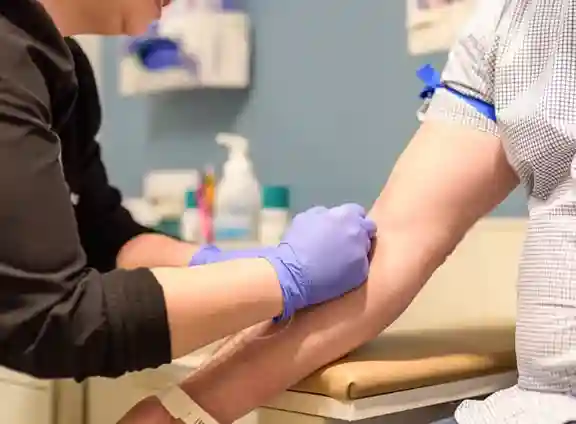Definition of a Hematology & Medical Oncology Specialist
Hematologic oncologists are doctors who specialize in treating blood cancers . They have extra training in the blood system, lymphatic system, bone marrow, and cancer.
The term “hematologist oncologist” comes from two different types of doctors. Hematologists specialize in diagnosing and treating blood diseases. Oncologists specialize in diagnosing and treating cancer.
Hematologic oncologists specialize in both. A person may see a hematologic oncologist if they have suspected or confirmed blood cancer.
Diseases Treated by Hematology & Medical Oncology Specialists
Hematology oncologists treat cancers of all ages, although some doctors may have extra training in pediatric oncology or specific types of blood cancers. Types of blood cancers these specialists may treat include:
- Hodgkin’s lymphoma.
- Non-Hodgkin’s Lymphoma.
- Leukemia.
- Multiple myeloma.
- Iron deficiency anemia.
- Hemophilia.
- Sickle cell disease.
- Thalassemia.
- von Willebrand disease.
- Polycythemia vera.
- Blood clotting disorders.
Medical Actions That Can Be Performed by Hematology & Medical Oncology Specialist Doctors
The medical actions that can be carried out by hematologists and medical oncologists include:
-
Chemotherapy
Chemotherapy is a common treatment for cancer. The procedure uses drugs to kill cancer cells in the body. Side effects depend on the type of treatment but can include fatigue and hair loss. It can also cause health problems that can last long after treatment stops.
-
Radiation therapy
This procedure aims to kill cancer cells by sending energy called radiation to specific parts of the body. Most people with cancer undergo radiation therapy, combined with chemotherapy, as part of their treatment program.
-
Bone marrow transplant
This procedure replaces damaged blood cells in the body. This procedure is done with the aim of restoring blood production. Bone marrow transplants restore red blood cells, white blood cells, and platelet production. The types of bone marrow transplants that may be obtained are:
- Autologous transplant. This transplant takes healthy blood stem cells from the body. The advantage is that there are no concerns related to blood cell incompatibility. Before chemotherapy, the doctor will first extract blood cells and freeze them for transplantation during recovery.
- Allogeneic transplant. This transplant takes healthy stem blood cells from another person’s body. The cells must be compatible with the person’s body.
When Should You Visit a Hematology & Medical Oncology Specialist?
The first examination is usually done by a general practitioner. Furthermore, if there are indications that point to blood cancer, you may be referred to a Hematology and Oncology Sp.PD doctor.
You need to see a Hematology and Oncology specialist if you experience the following symptoms:
- Fever, chills, cough or chest pain.
- Experiencing itching or a rash.
- Constant weakness, fatigue or night sweats.
- Difficulty catching your breath.
- Painless swelling of the lymph nodes in the groin, armpit or neck.
- Changes in appetite or recurrent nausea.
Preparation Before and After Visiting a Hematology & Medical Oncology Specialist
The doctor will review your medical history, including family history and allergies. Then, the doctor will check your vital signs such as heart rate, blood pressure, vision, and perform a physical exam.
After that, the doctor will review the test results and discuss treatment options. Periodic health checks may be needed until all treatment processes are complete, or your health condition improves. So, make sure you follow your doctor’s instructions to help reduce the pain or discomfort you are experiencing.

